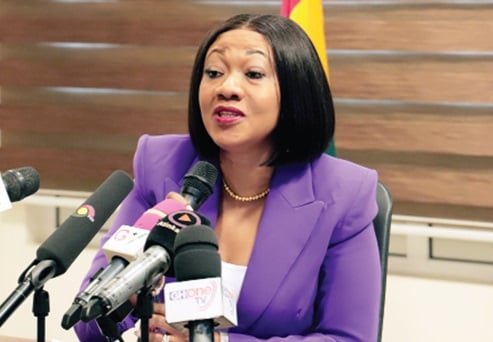The Electoral Commission (EC) of Ghana recently clarified its position regarding the provision of supplementary data alongside the certified voters register in response to a request from the opposition National Democratic Congress (NDC). This request followed the issuance of the final voter register, which the EC had provided to all political parties in preparation for the upcoming elections on December 7. The NDC expressed concerns about the lack of detailed statistics accompanying the register, arguing that such data would facilitate greater transparency in the electoral process and allow for more informed scrutiny by political entities and the public.
In an address to journalists, EC Chairperson Jean Mensa emphasized that the commission is not legally obligated to include a summary or additional statistics with the certified voters register. She reinforced that the register provided to the political parties stands as a certified document and is legally valid without supplementary information. Mensa made it clear that the absence of a summary does not undermine the certification of the register, and if the NDC or any other party chooses to reject the document, that decision falls within their rights. This position aligns with historical practices of the EC, which has reportedly not provided additional summaries alongside confirmed registers in past elections.
As a commission committed to transparency, Mensa expressed willingness to generate a detailed summary for stakeholders, despite the lack of a legal requirement to do so. She indicated that the EC’s intent is to be responsive to the needs of political parties while adhering to legal frameworks governing electoral procedures. The EC aims to maintain its integrity and uphold trust in the electoral process, especially in light of the heightened scrutiny surrounding elections. This scenario highlights an ongoing tension between the EC’s commitment to legal compliance and opposition parties’ requests for more transparency and data.
The NDC’s insistence on additional data underscores broader issues related to electoral transparency and public confidence in the processes governing elections in Ghana. The opposition party’s role as a checks-and-balances mechanism in a democratic system often entails seeking more detailed information to ensure accountability from the electoral body. The EC’s established practices, although legally sound, may require reassessment in a context where public demand for transparency is increasing, particularly in a politically charged environment leading up to elections.
Ultimately, the communication between the NDC and the EC illustrates a dynamic tension inherent in electoral governance. The EC must balance its legal obligations with the expectations of political parties and civil society, especially as the nation approaches critical electoral deadlines. The push for more comprehensive voter register statistics not only reflects concerns about this specific elections cycle but also points to broader implications for electoral integrity and public trust in democratic institutions in Ghana.
The situation underscores the importance of dialogue between electoral commissions and political entities to foster a more transparent electoral environment. As elections approach, both the EC and political parties must navigate the landscape responsibly, with an emphasis on cooperation and the collective goal of upholding democratic principles. Addressing concerns about transparency may involve re-evaluating standard practices and exploring ways to enhance communication and information sharing in order to build trust and confidence in the electoral process among all stakeholders.














